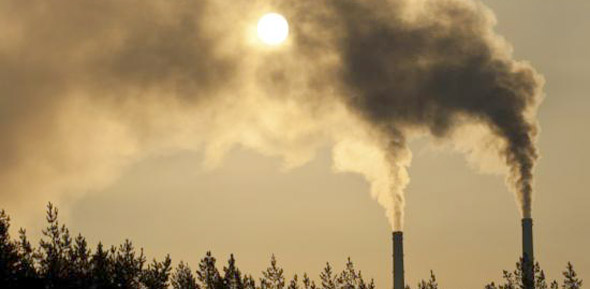RESEARCH TO POLICY: ENVIRONMENT + HEALTH
Innovative study estimates extent to which air pollution in China shortens human lives
Finds major impact of coal emissions on health

A high level of air pollution, in the form of particulates produced by burning coal, significantly shortens the lives of people exposed to it, according to a unique new study of China co-authored by an MIT economist.
The research is based on long-term data compiled for the first time, and projects that the 500 million Chinese who live north of the Huai River are set to lose an aggregate 2.5 billion years of life expectancy due to the extensive use of coal to power boilers for heating throughout the region. Using a quasi-experimental method, the researchers found very different life-expectancy figures for an otherwise similar population south of the Huai River, where government policies were less supportive of coal-powered heating.
“We can now say with more confidence that long-run exposure to pollution, especially particulates, has dramatic consequences for life expectancy,” says Michael Greenstone, (formerly) the 3M Professor of Environmental Economics at MIT, who conducted the research with colleagues in China and Israel.
Browse more SHASS stories about Energy and the Environment